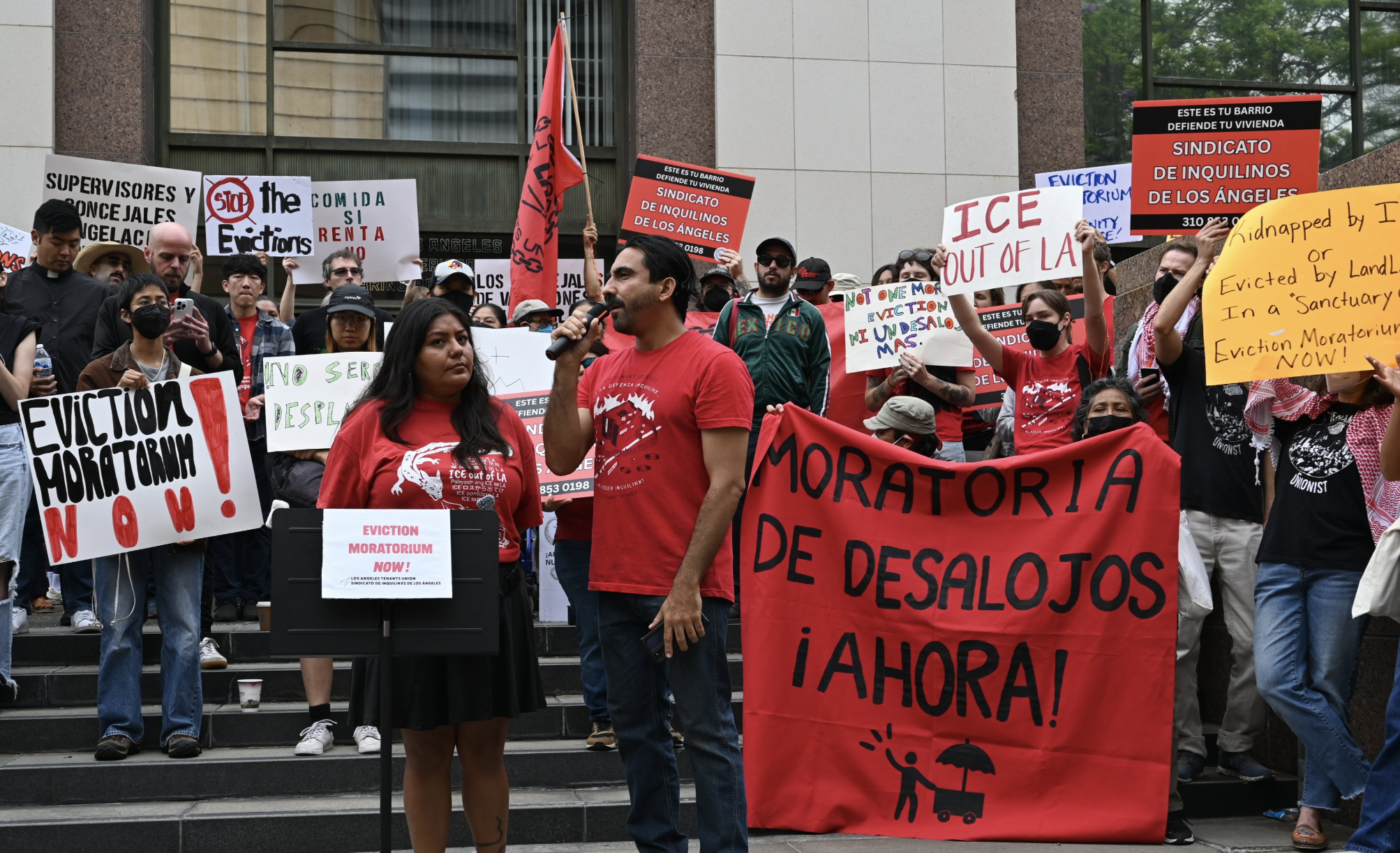As rent deadlines loom across Los Angeles, thousands of immigrant families remain in economic freefall following a wave of federal deportation raids. Since early June, aggressive immigration enforcement has swept through the city, detaining hundreds and sending shockwaves through industries that rely heavily on immigrant labor. Families have lost breadwinners, workplaces have shut down, and tenants who were already on the edge are now at imminent risk of eviction.
In response, housing and immigrant justice advocates are urging the city to immediately allocate emergency rental assistance through Measure ULA, the so-called “mansion tax” fund approved by voters to combat homelessness and housing insecurity. Earlier this year, after wildfires tore through parts of the city, the Council used ULA funds to support renters who lost income. Advocates say that precedent makes it clear the city can and should do the same now. The oversight committee that manages ULA is currently considering a proposal to prioritize families impacted by the ICE raids for an upcoming funding round, but applications may not open until fall. For tenants already facing August rent with no income, that delay could prove disastrous.
City leaders have so far looked to philanthropy to fill the gap. A new relief fund for immigrant families was seeded with a $100,000 donation from the California Community Foundation, and officials are soliciting further private contributions to provide temporary aid, potentially through prepaid debit cards. But this patchwork approach has sparked criticism. Relying on private charity to address a public housing crisis is slow, uncertain, and fundamentally limited in scope. While private donors may help in the short term, the scale of the crisis demands a public response rooted in policy, not fundraising.
Some officials have pointed to Measure ULA as a flexible source of funding that can fill the void left by budget shortfalls and federal inaction. But critics argue that even ULA funding, while helpful, is only one piece of the puzzle. During the wildfire recovery effort, the city relied on ULA dollars rather than enacting broader protections like an eviction moratorium. Now, the city is at risk of repeating that pattern—offering stopgap financial aid while families continue to lose their homes.
What makes the inaction especially troubling is that the ICE raids have caused more widespread disruption than the wildfires. The January fires devastated specific areas and displaced workers tied to those neighborhoods—primarily in home service and care industries. Roughly 35,000 workers were estimated to have lost income as a result. In contrast, the immigration raids have created a citywide crisis. Nearly 500 raids have been documented in the past two months, and federal detention centers are now holding more than a thousand Angelenos. Businesses across sectors have shut down or scaled back. Workers—both undocumented and citizen—are staying home out of fear or losing jobs altogether.
One analysis found that employment in California’s private sector dropped more than 3% in the week after the raids began. That’s a sharper decline than what followed the 2008 recession and the largest one-week dip since the start of the COVID pandemic. The economic impact is not limited to those who were detained. Entire industries are slowing down, and families across Los Angeles are seeing income vanish.
Despite this, there is still no eviction moratorium in place. Earlier this year, after the fires, the City Council debated but rejected a moratorium on evictions for renters who had lost income. Some councilmembers claimed the evidence didn’t support such a sweeping measure, instead favoring rental assistance. But the County stepped in where the City would not, enacting a six-month moratorium that covered both unincorporated areas and incorporated cities, including Los Angeles. That policy, which ends in July, has helped stabilize thousands of renters who might otherwise have faced immediate eviction.
Given the scale and reach of the ICE raids, housing advocates argue that an even more urgent case exists for a new eviction moratorium now. The number of families affected is larger, the economic damage is broader, and the people impacted have fewer legal protections and access to public support. Many undocumented workers don’t qualify for unemployment benefits or other forms of relief. Without strong tenant protections, they are among the most likely to be displaced, and among the least likely to recover. City officials have yet to introduce a moratorium tied to the immigration raids, even as calls from tenant groups grow louder. Some councilmembers have proposed legal challenges to the federal government’s tactics, but few have addressed the immediate housing fallout for the families left behind.

